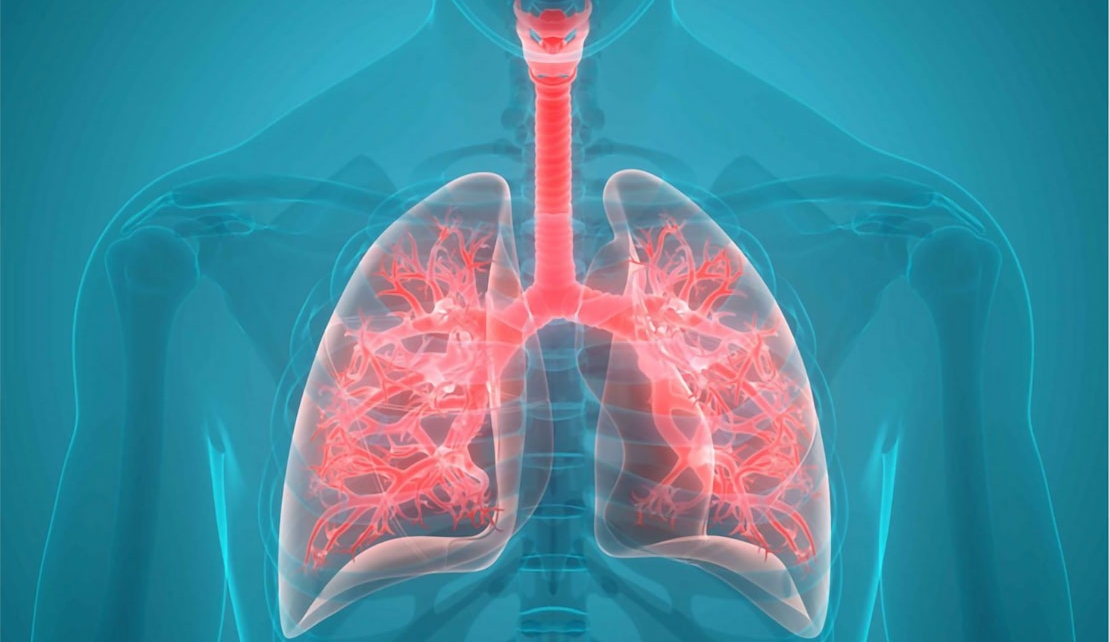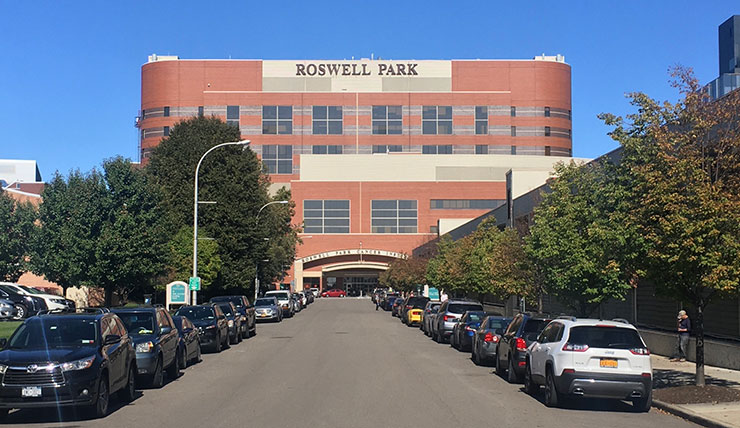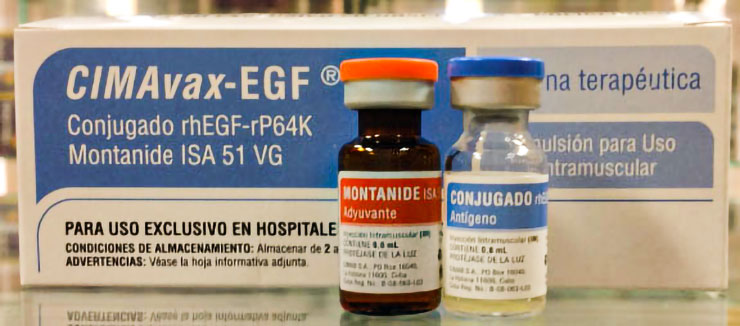CUBA | U.S. and Cuba Unite Against Lung Cancer With CIMAvax-EGF Clinical Trial

BUFFALO, N.Y. — The Roswell Park Comprehensive Cancer Center out of Buffalo New York, is partnering with Cuba’s Havana’s Centre for Molecular Immunology (CIM) through an innovative lung cancer immunotherapy —CIMAvax-EGF— in a groundbreaking international collaboration with an immunotherapy developed in Cuba to treat lung cancer.
According to the Council on Hemispheric Affairs, COHA, The United States and Cuba have found some common ground through medical partnerships, and although conflict remains between both governments, their medical communities have identified the benefits of working together in order to advance our understanding of medical treatment.
The United States and Cuban biotech joint venture, established to conduct a trial and deliver CIMAvax-EGF, an innovative Cuban lung cancer immunotherapy treatment to patients in the United States, is one such venture.

The interventional early-phase clinical trial is currently recruiting for participants who fall into two groups. The first is middle-aged individuals who currently smoke or have quit smoking within 15 years and carry other lung cancer risk factors like COPD, family history of the disease or have high-risk occupational exposures but have not been diagnosed with cancer.
The other group is lung cancer survivors who have completed treatment. “If you’ve had lung cancer and survived it, your biggest fear is that the tumor is going to come back, and we’d like to do anything we can to prevent that,” said Dr. Mary Reid, who is also the Chief of Screening, Survivorship and Mentorship at Roswell Park. “I think CIMAvax has shows great potential to help this group as well as individuals who are past or current smokers at risk for lung cancer.”
This immunotherapy works by blocking a protein known as epidermal growth factor (EGF), which lung cancer cells need to grow. CIMAvax produces antibodies against EGF, mounting an immune response, capturing the protein so that it no longer circulates in the blood and no longer reaches the cancer cells. The cells end up “starved,” as the protein cannot connect to its receptor, known as EGFR, on the cell and cancer growth is inhibited.
El Instituto Roswell Park de los Estados Unidos anuncia el inicio de un estudio clínico con la vacuna cubana CIMAvax-EGF en la prevención del cáncer de pulmón.https://t.co/XvJgNb4IuT
— BioCubaFarma (@BioCubaFarma) October 31, 2021
Previous studies have shown that EGFR has been found in the airways of cancer-free subjects as well as people diagnosed with cancer. Dr. Reid and team are looking to learn whether the antibodies created by CIMAvax may drive down the risk for developing lung cancer.
“No one deserves to get lung cancer,” says Dr. Reid. “We need to offer people something to reverse damage done by smoking exposure. If we could have an easy-to-administer medication someone can get on an outpatient basis that could prevent them from progressing to cancer — that would be a quality-of-life game-changer. So we’re exploring whether CIMAvax has that potential.”
CIMAvax-EGF has been developed over the course of more than 25 years by researchers at the Center for Molecular Immunology (CIM) in Havana, Cuba. The CIM is currently conducting an identical prevention study in their country.
According to COHA, the medical researchers at Roswell Park were astonished by Cuba’s medical breakthroughs. They found that Cuba’s medical progress has the potential to advance cancer treatment in the field of immunology.

“Our goal is to develop these promising cancer therapies as quickly and effectively as possible” to “benefit the greatest number of U.S. patients.
The COHA article says ”Despite the political tensions between Cuba and the United States, which is mainly rooted in Washington DC, the U.S. medical and scientific community has recognized Cuba’s medical advances. Cuba’s ongoing history of medical breakthroughs has also been recognized by the global community which has resulted in medical partnerships with over 67 countries.
Cuba leads the world in medical diplomacy as many countries have welcomed Cuba’s exceptional medical professionals. Cuba has made a significant medical impact on every continent. For example, Cuba “has a large presence in 30 different countries in the African continent,” the Middle East, Asia and Portugal and their efforts have been recognized by the World Health Organization (WHO).
In 2017, “the Henry Reeve International Medical Brigade (HRIMB) of Cuba was awarded the prestigious […] Dr. Lee Jong-wook Memorial Prize for Public Health” by WHO “at a World Health Assembly ceremony […] for its emergency medical assistance to more than 3.5 million people in 21 countries affected by disasters and epidemics since the founding of the Brigade in September 2005.”
COHA says Cuba’s medical personnel are more active in countries that need it the most. For example, Cuba sends more medical personnel annually to the developing world than all the G8 countries combined.
Despite Cuba’s limited resources and the never-ending U.S. embargo, Cuba continues to export its vital resource – medical care. Developed countries in Europe are now reaching out to Cuba to partner on a biotechnology response to the COVID-19 pandemic.
